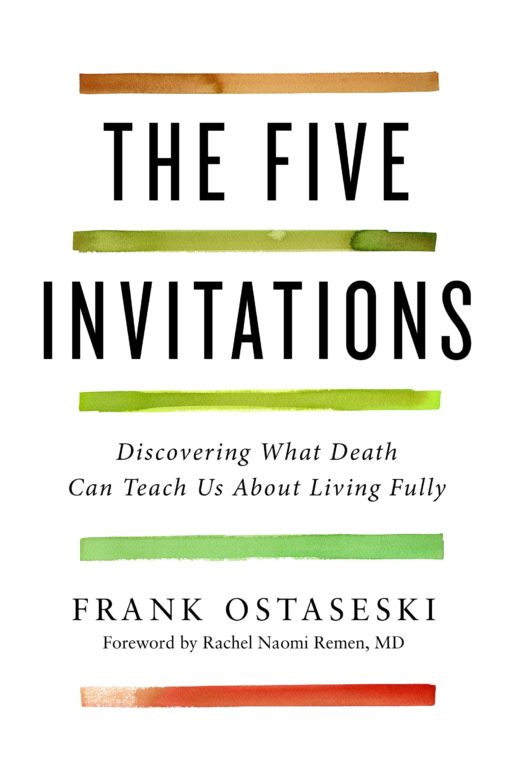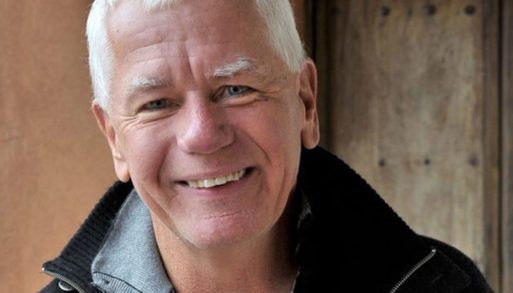 “The Five Invitations: Discovering What Death Can Teach Us About Living Fully” is a complex, thought provoking and thoroughly engaging book about how we can use the certainty of death to create fuller, richer more authentic lives. A collection of wisdom distilled from Frank Ostaseski’s three decades of caring for the dying, it speaks to us about what it means to be human and why accepting our shared humanity is the key to unlocking the innate qualities that can transform our lives.
“The Five Invitations: Discovering What Death Can Teach Us About Living Fully” is a complex, thought provoking and thoroughly engaging book about how we can use the certainty of death to create fuller, richer more authentic lives. A collection of wisdom distilled from Frank Ostaseski’s three decades of caring for the dying, it speaks to us about what it means to be human and why accepting our shared humanity is the key to unlocking the innate qualities that can transform our lives.
Clearly informed by the author’s deep roots in Buddhist tradition, the five invitations are not five discrete concepts, but rather a finely woven tapestry, an instructive meditation on the possibility of surrendering to forces more powerful than ourselves. The author presents them to us in very simple terms:
Don’t wait
Welcome everything; push away nothing
Bring your whole self to the experience
Find a place to rest in the middle of things
Cultivate don’t know mind
But as he guides us through each one, we realize that he is gently and skillfully exploring the intricacies of the human condition — our fragile sense of who we are; our constant striving for perfection; our rejection of what we find wanting in ourselves; our unwillingness to let go of our preconceived beliefs; and the profound sense of separation that causes so much suffering in our lives. Sharing personal stories about his own life and the lives of those he has cared for as they neared the end of theirs, he slowly unveils a carefully crafted road map to living and dying well.
“The Five Invitations” is filled with magnificent nuggets of insight and wisdom interwoven with stories of people struggling with the reality of impending death. The author even shares his own experience of nearly dying from a heart attack, his open heart surgery, and his slow, difficult and ultimately transformative recovery. He doesn’t sugar coat death, nor does he give us a prescription for how to do it the “right way.” Instead, he simply talks about how we can access the innate courage, wisdom and compassion that we all possess. In one of my favorite passages, he writes:
“The wisdom that gives rise to compassion is the clear understanding of our interdependence, an appreciation that we are not separate. We may appear so, but this is misperception, a conditioned view that shapes how we see ourselves and how we engage with each other.”
He then uses a wonderful metaphor of waves in the ocean, describing how each wave is completely unique, yet also part of the same whole.
“They come into form dependent on many different conditions, live for a while, and express a distinctive beauty before they disappear, thrown up on the beach before flowing back out to sea. Each wave is distinct but not separate. They are all part of the same ocean. The ocean is one big body and the waves are its individual expression.

Frank Ostaseski is the 2018 recipient of the American Academy of Hospice and Palliative Medicine Humanities Award.
Credit: Cira Crowell via fiveinvitations.com
It’s a powerful concept, and one that resonated deeply with me. We are not separate. We are all part of the same whole. Each of us is good and evil, strong and weak, oppressor and oppressed. Each of us suffers, and each of us dies. But we do not suffer and die alone, not in any real sense. Our connection to others exists independently of our ability to perceive it and serves as a conduit to compassion, connection, and hope, even in the midst of pain and despair.
“The Five Invitations” is an important book, written by a man who has devoted his life to learning and service. The co-founder of Zen Hospice and founder of the Metta Institute, Frank Ostaseski has sat at the bedside of thousands of people as they faced death, and he has come away from those experiences with a deep love for his fellow human beings that emanates from every page of this book. For that reason alone, “The Five Invitations” should be required reading for anyone who has ever felt ill-equipped to deal with the challenge of living a fully present life.

 “The Five Invitations” by Frank Ostaseski
“The Five Invitations” by Frank Ostaseski


 First the Wealth Gap, Now the U.S. Has a Growing Health Gap
First the Wealth Gap, Now the U.S. Has a Growing Health Gap
 How to Comfort A Dying Loved One
How to Comfort A Dying Loved One
 Our Annual Seven Holiday Gifts for Someone Who Is Grieving, 2024 Edition
Our Annual Seven Holiday Gifts for Someone Who Is Grieving, 2024 Edition














